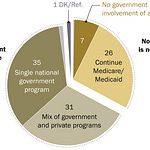When I moved from China to Canada, I expected culture shock. What I didn’t expect was how differently people talk about society, fairness, and what makes life “work” for ordinary people. The contrast is sharpest when I look at the U.S.—a country obsessed with “opportunity” and “hard work,” but where conversations about “class” or “class struggle” seem almost invisible.
In China, class isn’t a taboo subject at all.
We openly discuss class issues. From a young age, we learn about class and social structure in school. There’s a general understanding that society is divided by wealth, status, and power—and that these divisions shape people’s lives and opportunities. Conversations about inequality, the working class, and the role of ordinary people are a normal part of public discussion and education
In Canada, it’s common to hear people openly discuss wealth inequality, social safety nets, or how the system treats the rich and poor. The national media, politicians, and even everyday conversations will debate whether the system itself is fair. But in the U.S., even though more than 60% of Americans think the wealth gap is a serious problem (Pew Research, 2020), only about a third believe the government should do more to redistribute wealth. Most people still say: “If you work hard, you’ll succeed.”
But here’s the reality behind the headlines:
The top 1% in America now own nearly 40% of all wealth. The bottom half? Just 2.5%. Social mobility—the chance to move up in life—has been dropping for years. And even when workers go on strike, like last year’s Hollywood writers or auto workers, the media almost never frames it as a class issue. Instead, news stories talk about “industry problems,” “bad management,” or sometimes focus entirely on identity issues like race and gender.
This is something that stands out to me as an outsider.
U.S. mainstream media and political debates almost always use “identity politics”—focusing on race, gender, or culture wars—to explain social conflict. Rarely does anyone talk about the deeper economic struggle between those who own the resources and those who have to work for them. Meanwhile, issues like wage stagnation, unaffordable housing, and healthcare all come down to that core question: Who really controls the power and money?
When everyone is busy arguing about personal effort, identity, or who deserves what, it distracts from asking how the system itself is set up—and who really benefits. It’s not that race, gender, or culture don’t matter. They matter a lot. But when class becomes invisible, it’s easier for those at the top to keep things the way they are.
I’m not trying to make a political statement—just sharing what I notice living in Canada, as someone who grew up in China. Sometimes I wonder: Would things change if more Americans talked honestly about how the system works, instead of always blaming themselves or each other?
What do you think?
Is this really just about luck and hard work, or is there a bigger class issue underneath it all?
I’d love to hear your thoughts and stories—drop them in the comments below.











